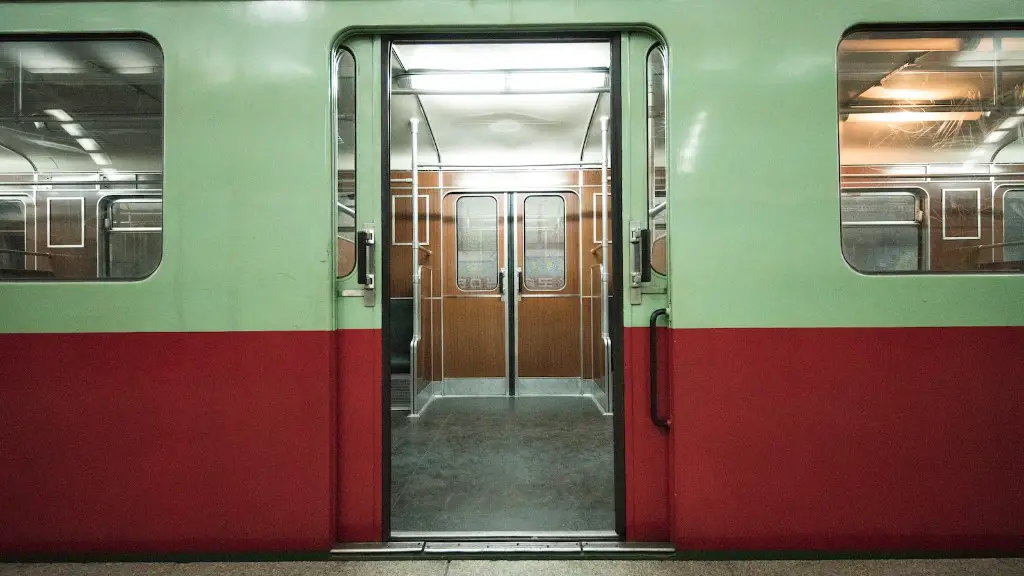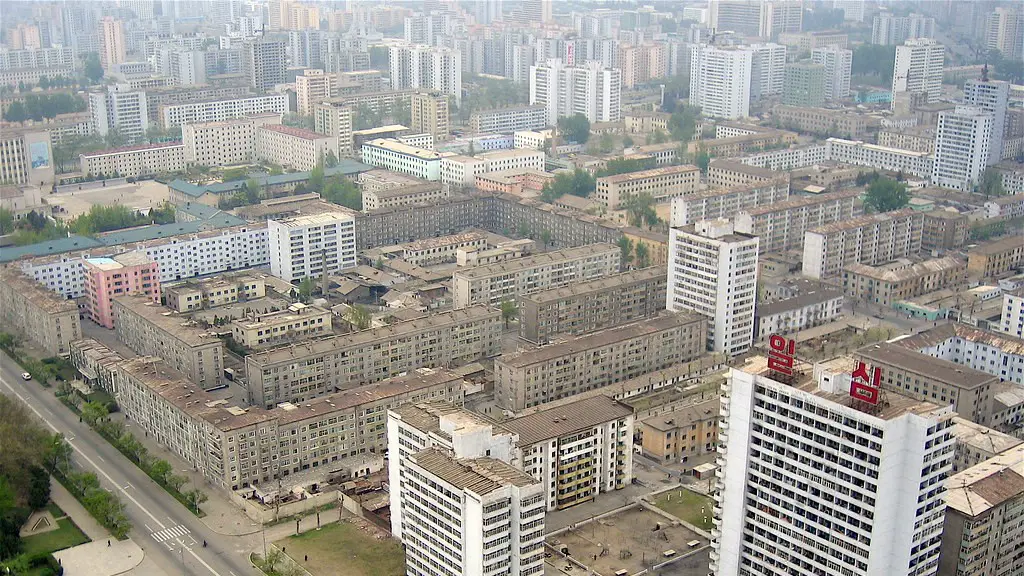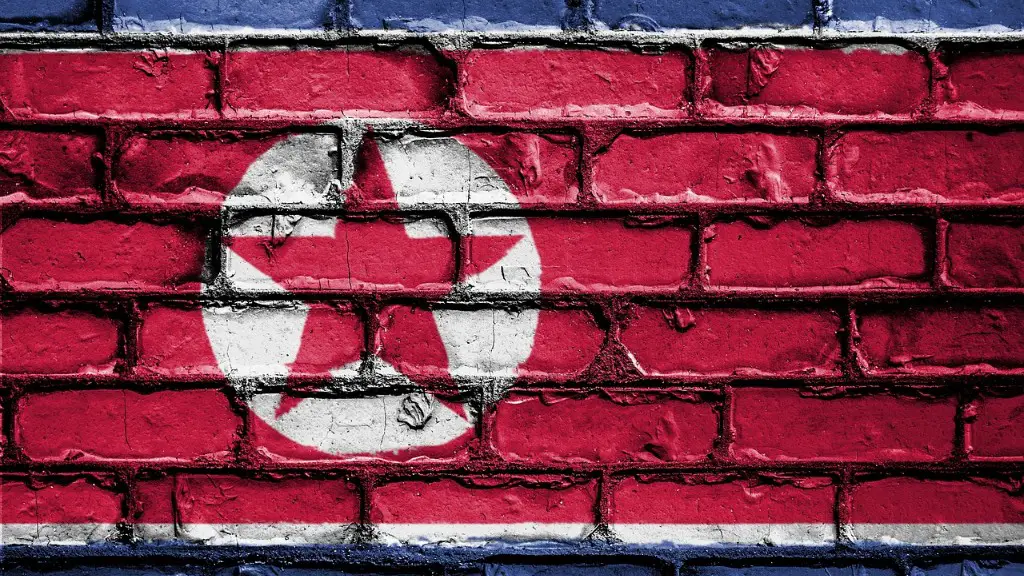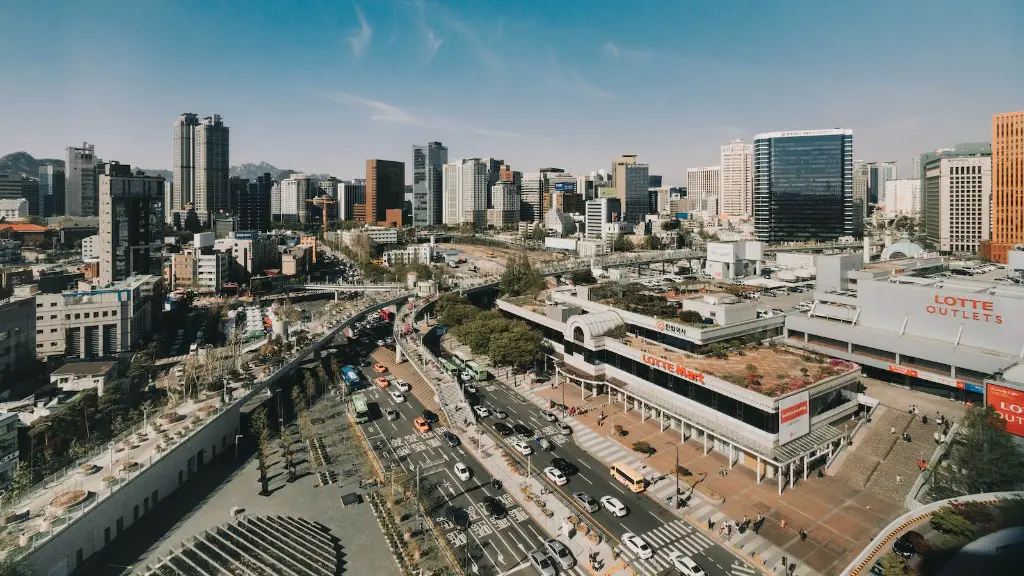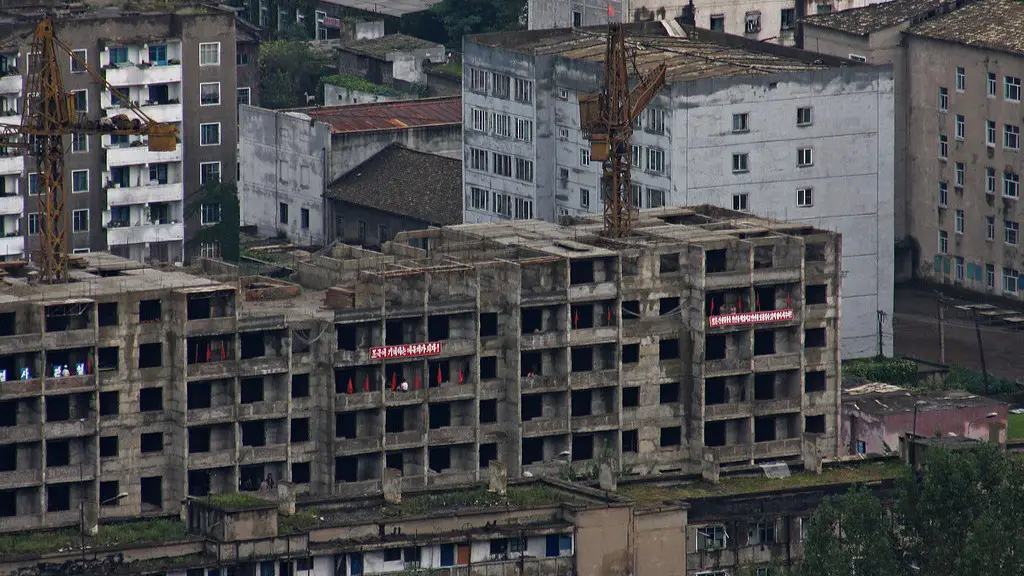When it comes to North Korea, one of the most heavily sanctioned countries in the world, the question of who gives it foreign aid is an important one. North Korea relies heavily on foreign aid to help keep its economy afloat and to support its programs and population. While North Korea relies heavily on trade with China and other countries in the region, the majority of its foreign aid comes from organizations and countries outside of the region.
The UN is the largest donor to North Korea and has been providing humanitarian aid to the country since the mid-1990s when North Korea began to experience economic hardship. The UN provides food aid and funds for medical care and medicine, among other things. Other major donors to North Korea include the United States, South Korea, and other countries in the region. The US has provided close to $1 billion in aid since 1995 and has pledged to continue providing humanitarian assistance. South Korea has also pledged to provide a sizable amount of aid to North Korea, although much of this aid is in the form of investments in key infrastructure projects.
While the UN and other countries are the major sources of foreign aid, there are also international organizations, non-governmental organizations and private donors who provide aid to North Korea. The World Food Program is the most visible of these organizations and has been instrumental in providing humanitarian aid to North Korea. Additionally, the International Federation of Red Cross and Red Crescent Societies, Oxfam and other private donors have been providing aid to North Korea for decades.
Despite the significant amount of aid provided to North Korea, there is still a large amount of poverty in the country. According to recent estimates, close to half of North Koreans are living in poverty and many lack access to basic necessities such as medical care and education. The UN, as well as other donors, are working hard to provide aid to those in need in North Korea, but the country’s isolation and heavy sanctions imposed by the US and other countries make it difficult to make much progress.
Despite the challenges, the international community continues to provide aid to North Korea in the hopes of improving the lives of the citizens. The UN continues to be the most significant source of aid and works closely with other donors to ensure that the assistance is reaching those who need it most. The US, South Korea and other countries have also pledged to provide aid as well, and there are increasing efforts to open up channels for more aid to help those in need.
Economic Challenges
The economic challenges facing North Korea are significant and are a key barrier to providing effective aid. North Korea’s economy heavily relies on imports from other countries, mostly from China. Additionally, North Korea is under heavy sanctions imposed by the US and other countries aimed at curbing the country’s nuclear and missile ambitions. These sanctions can make it difficult to provide aid to the country, as many goods and services are prohibited from being exported to North Korea. As such, the international community has been working hard to find ways to provide aid without violating the sanctions.
Another challenge for aid organizations is the amount of corruption in North Korea. The government is able to restrict the flow of resources and manipulate who receives aid and how it is distributed. This has led to allegations of misappropriation of funds and aid not reaching those who need it most. In order to ensure that aid is reaching those who need it most, efforts must be taken to hold the North Korean government accountable and to ensure that the resources are being allocated appropriately.
One of the most effective ways to combat the misappropriation of resources is to partner with local organizations who are better able to monitor the distribution of aid and the spending of funds. By working with local organizations, aid organizations can better ensure that the aid is reaching those who need it most. Additionally, partnering with local organizations can help to provide a more accurate picture of the needs of the North Korean population, which can in turn help to ensure that the aid is tailored to meet those needs.
Political Challenges
The political situation in North Korea is another key challenge for aid providers. The government is highly authoritarian and does not allow for any forms of civil society or independent organizations. This makes it difficult for aid organizations to operate in the country and monitor the distribution of resources. Additionally, the government is known for its brutal treatment of those who dare to voice dissent, making it difficult for those in need to access aid without fear of reprisal.
Moreover, the government restricts the flow of information and severely limits access to the internet, making it difficult for aid organizations to reach those in need. For example, the UN is currently working on a project to bring internet access to North Korea, but it has been blocked every step of the way by the government. The political situation also makes it difficult to implement long-term and sustainable aid programs, as they require cooperation from the government.
Despite the political and economic challenges, the international community has an obligation to help those in need in North Korea. By taking a smart and effective approach and working with local organizations, the international community can help to ensure that aid is reaching those who need it most. Additionally, increased pressure on the government to allow for more freedom and access to resources can help to ensure that aid is reaching those in need.
Role of China
China remains one of the most influential players in North Korea, both politically and economically. North Korea relies heavily on Chinese investment and trade to keep its economy afloat. Additionally, China is the largest donor to North Korea, providing approximately 70% of the country’s foreign aid. China has pledged to continue providing aid to North Korea, although it has also been tightening its restrictions and imposing stricter limits on certain items.
Despite this, China is still seen as a key player in providing aid to North Korea. In addition to providing direct aid, China has also been helping to facilitate economic development and reform. For example, China has been providing technical expertise and resources to help North Korea transition to a more open, market-based economy. Additionally, China has also been encouraging greater engagement between North Korea and the rest of the international community.
In recent years, China has also been working to persuade North Korea to relax its restrictions on civil society and increase access to the internet, both of which are necessary for the effective delivery of aid. Additionally, China is working to strengthen North Korea’s trade ties with other countries in the region, which could help to provide more resources and improve the country’s economy.
China’s role in providing aid and assistance to North Korea is a complicated one, and it is clear that it will remain an influential player in the country for the foreseeable future. While China is a major player in providing aid to North Korea, it should also be held accountable for its own actions in the country and should be held to the same standards as the rest of the international community.
Conclusion
Providing aid to North Korea is a difficult and complex task, given the country’s isolation and heavy sanctions. Despite this, there are still a number of organizations and countries providing aid to North Korea in an effort to improve the lives of its citizens. The UN is the largest contributor of aid to North Korea, and other countries and organizations are also providing assistance. Additionally, China is a major donor to North Korea and plays a key role in facilitating economic reform and development. In order to ensure that aid is reaching those in need, it is important that the international community continue to work together to address the needs of the North Korean people.
